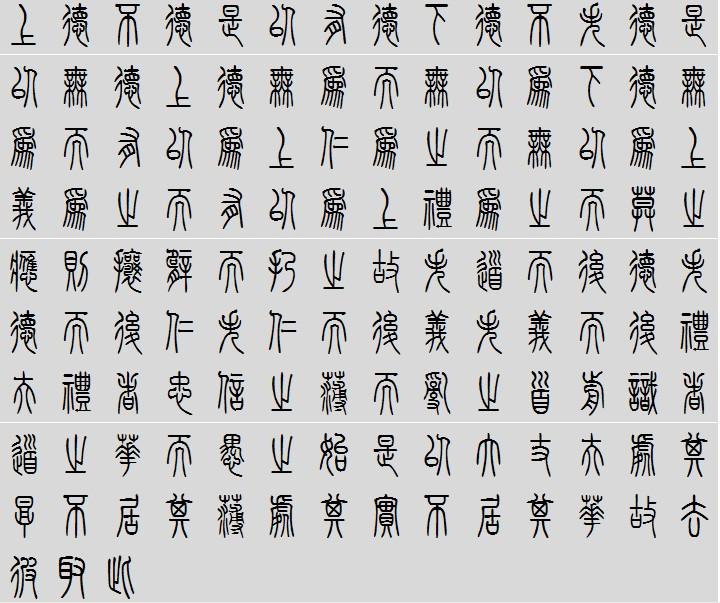第三十八章
(Those who) possessed in highest degree the attributes (of the Tao) did not (seek) to show them, and therefore they possessed them (in fullest measure).
上德不德,是以有德;
(Those who) possessed in a lower degree those attributes (sought how) not to lose them, and therefore they did not possess them (in fullest measure).
下德不失德,是以无德。
(Those who) possessed in the highest degree those attributes did nothing (with a purpose), and had no need to do anything.
上德无为而无以为;
(Those who) possessed them in a lower degree were (always) doing, and had need to be so doing.
下德无为而有以为。
(Those who) possessed the highest benevolence were (always seeking) to carry it out, and had no need to be doing so.
上仁为之而无以为;
(Those who) possessed the highest righteousness were (always seeking) to carry it out, and had need to be doing so.
上义为之而有以为。
(Those who) possessed the highest (sense of) propriety were (always seeking) to show it,
上礼为之而莫之应,
and when men did not respond to it, they bared the arm and marched up to them.
则攘臂而扔之。

Thus it was that when the Tao was lost, its attributes appeared; when its attributes were lost, benevolence appeared;
故失道而后德,失德而后仁,
when benevolence was lost, righteousness appeared; and when righteousness was lost, the proprieties appeared.
失仁而后义,失义而后礼。
Now propriety is the attenuated form of leal-heartedness and good faith, and is also the commencement of disorder;
夫礼者,忠信之薄,而乱之首。
swift apprehension is (only) a flower of the Tao, and is the beginning of stupidity.
前识者,道之华,而愚之始。
Thus it is that the Great man abides by what is solid, and eschews what is flimsy; dwells with the fruit and not with the flower.
是以大丈夫处其厚,不居其薄;处其实,不居其华。
It is thus that he puts away the one and makes choice of the other.
故去彼取此。


